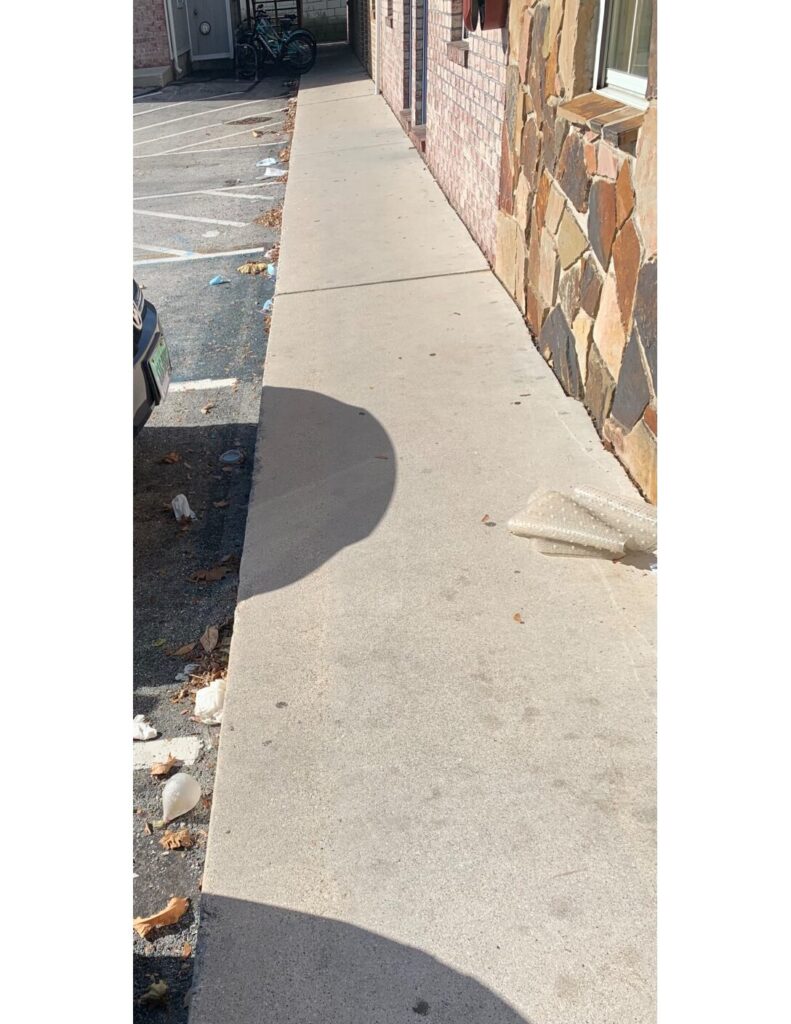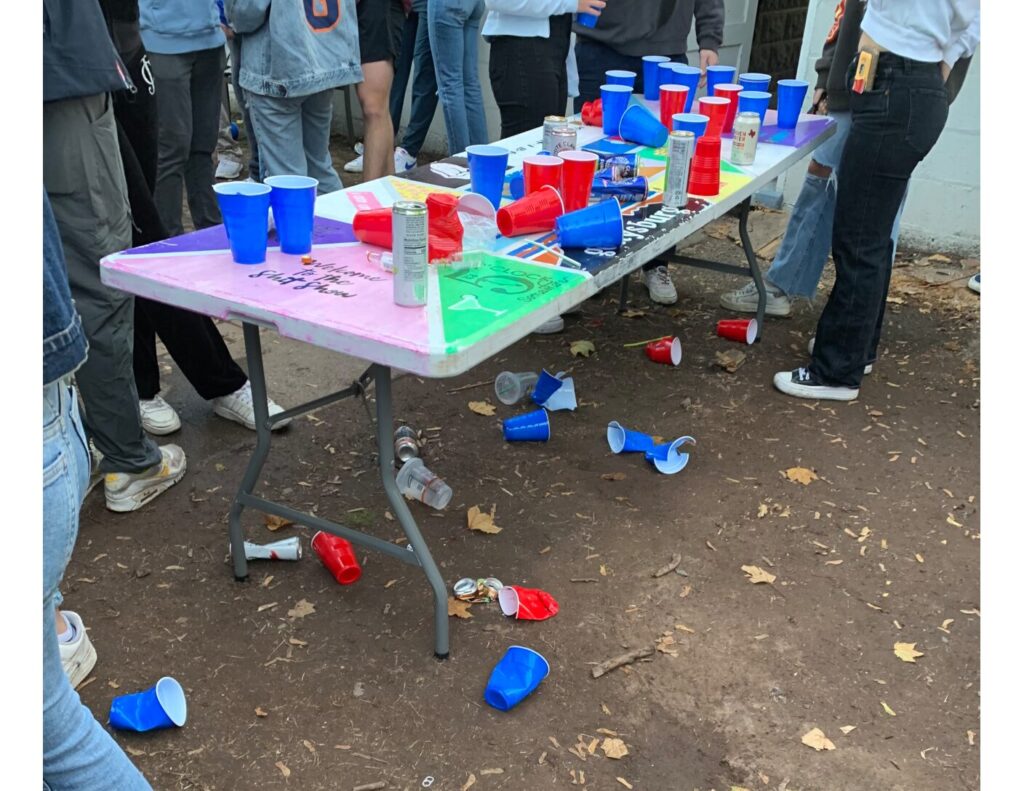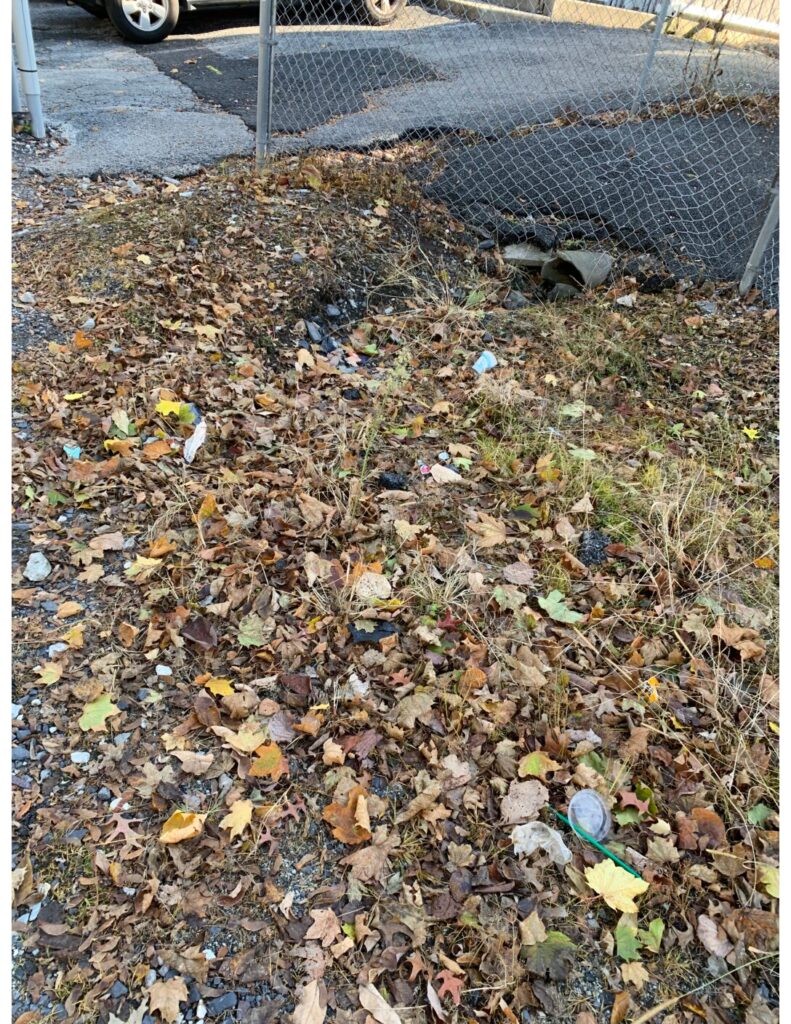What to do with all this litter?
Warning: Undefined array key "file" in /home/envhuman/public_html/environmentaljournalism_2021/wp-includes/media.php on line 1749
Warning: Undefined array key "file" in /home/envhuman/public_html/environmentaljournalism_2021/wp-includes/media.php on line 1749
Warning: Undefined array key "file" in /home/envhuman/public_html/environmentaljournalism_2021/wp-includes/media.php on line 1749
An opinion piece about the litter at Gettysburg college by Julia Phillips
As I walk to class on Monday mornings all I can notice is the trash around campus that has been left for someone else to clean up. Sometimes this trash will sit there for weeks until the wind blows it away. Students don’t respect their campus and the people who must clean up after them. Gettysburg College students are fortunate to have cleaners Monday-Friday that clean up the building they live in, and landscapers clean up the campus. This is not just happening at Gettysburg College; it is happening around the world. College students litter more than every other age demographic.
At Gettysburg College, litter is everywhere, students don’t throw away their garbage and it is harming the environment and creating more work for employees.
What makes people litter?
People litter for many different reasons: there are no trash cans, or they are full, there is already litter on the ground, they aren’t educated on the matter, etc. Trash cans are a big factor as to how much litter there is. There are many trash cans on campus at Gettysburg, but they might not be in the right places.
In People who Litter, an ENCAMS Research report by Dr. Fiona Campbell says the research shows people will not go out of the way to find a trash can (2007). Having trash cans right outside where you formulate trash is not where people need to throw away the trash. People will walk as they eat and when they do have trash, they can’t find a trash can. There are many trash cans scattered around campus, but not on the outskirts of it.
I currently live in College Apartments, and I don’t see a trash can until I get to Schmucker. There is a dumpster in the parking lot, but people don’t want to walk all the way there to throw out one piece of trash.

While talking to Cate Pollini, a junior at Gettysburg College, she said she sees the most trash at College Apartments and doesn’t know where the trash cans are on campus. She admitted to littering a few times due to the issue of not having trash cans nearby.

Campbell also says that “People who litter say that they would be less likely to do so in areas that are clean and tidy”. If the campus was clean all the time, students would be less likely to litter it. In What makes people litter from The Irish Times by Conor Pope, it says the same thing, if an area is free of trash and well-maintained, it is less likely to attract litter than a place where there are no trash cans and a lot of litter (2018). While it is not the school’s fault for campus getting dirty, maintaining campus could help the matter. In the 2020 National Litter Study done by Keep America Beautiful, nearly 50 billion pieces of litter was found along roadways and waterways in the United States. That is 152 items of litter for each U.S. resident big or small (2021).
In a newspaper article about a beach sweep at Folly Beach, by Brian Hicks, it talks about drinking alcohol and littering. It states, “One young man was accused of dropping beer bottles on the beach, arguing when someone asked him to clean up his mess”(2010). The beach was full of empty alcoholic containers. When alcohol is involved, it leads to people littering more because they don’t follow the rules.
Pollini thinks that she sees the most litter after a weekend and people have been drinking and disrespecting the campus. Kerry Ellis, a junior environmental science, and political science double major at Gettysburg College said she sees the most litter outside of fraternity houses after parties. She says it’s due to people walking out of parties with their trash and throwing it on the ground. Tyler Daher, a junior in Sigma Nu at Gettysburg College agrees that he sees the most litter outside fraternity houses.

Do college students really litter the most?
While everyone litters, 18–21-year-olds litter the most due to them thinking they don’t have to clean up after themselves. Rianda Mulder, a professor at Saxion Hospitality business school in the Netherlands, did a research study where students said they litter because they are used to their parents cleaning up after them. They also said seeing cleaners on campus makes them more likely to litter because they know they will clean up after them (2016).
Pollini said that she is always seeing people on campus cleaning up so much trash and having them clean is nice to have but they shouldn’t have to clean when students are being disrespectful and leaving trash everywhere. Ellis says it is the student’s decision to litter and should be their responsibility to pick it up as well.
Students should not be littering because they know someone else will pick up after them. Students also love having a clean environment but won’t clean it up themselves. Tezza Anwar a professor at Widyatama University in Indonesia said students litter because after high school there are few rules to enforce throwing away trash. The absence of cleaning activities stops students from throwing away their trash correctly (2017).
After high school, students have very few rules to follow in college, they are not going to get in trouble at a big school where no one is watching your every move. There must be a way to enforce this.
Daher, who was a former boy scout said he use to litter when he was younger but when he joined the boy scouts, he stopped due to their enforcement of leave no trace. He said that he will go out of his way to pick up others’ trash and thinks everyone should be doing this at Gettysburg.
At the University of Pittsburgh Oakland Campus, they use to have “Clean Sweeps “where they cleaned up the trash, but this was too pricy to continue, and the town believes that students should oversee cleaning up after themselves (McNulty 2002).

Is there a solution?
There needs to be a solution to this litter problem at universities. Mahendra Prabu, a professor at Alagappa University in India believes that there is a correlation between social intelligence and environmental hygiene (2019). If you can get along with people and get them to cooperate, you might be able to get them to stop littering.
Fatima Salim Khawaja a professor at Quaid-i-Azam University in Pakistan believes that if students are fined for littering and held accountable it could solve the litter problem at the university she works at (2013).
Campaigning is shown to be effective. Campbell says if people see examples of what happens when you litter it could stop them from doing it.
Ceara Rush, a junior and environmental studies major at Gettysburg college thinks the school should be discussing with students about not littering and have separate bins for recycling because students throw everything in one bin which can cause the cans to overflow.
What now?
So, what can be done at Gettysburg College? The school can see if the trash can’s locations are in the right areas and help, have a campaign and a school event where students help pick up litter and educate the students on what will happen if they litter. Students here have never seen a litter campaign and this is an easy step in the right direction.
Bibliography
Anwar, T., Saudi, M., Sinaga, O. “Is it hard for college student to throw trash in place?” (October 2017). 187-191
Campbell, F. (2007). “People who Litter” ENCAMS Research Report. 1-35.
Hicks, B. (2010, Jul 24). Beach sweep; folly’s municipal court docket filled with cases as island cleans up litter, cracks down on alcohol. The Post and Courier Retrieved from http://ezpro.cc.gettysburg.edu:2048/login?url=https://www.proquest.com/newspapers/beach-sweep-follys-municipal-court-docket-filled/docview/722395207/se-2?accountid=2694
Keep America Beautiful. (2021, May). Keep America Beautiful 2020 National Litter Study Summary Report. 1-47
Khawaja, F. S., & Shah, A. (2013). Determinants of Littering: An Experimental Analysis. The Pakistan Development Review, 52(2), 157–168. http://www.jstor.org/stable/24397933
McNulty, T. (2002, Aug 28). Oakland battles college garbage returning students ‘litter fills sidewalks: [Region Edition]. Pittsburgh Post – Gazette Retrieved from http://ezpro.cc.gettysburg.edu:2048/login?url=https://www.proquest.com/newspapers/oakland-battles-college-garbage-returning/docview/391106064/se-2?accountid=2694
Mulder, R. (2016). 1.2 “Reducing Students’ littering Behaviour by Application of Persuasive Techniques”. Research papers for EuroFM’s 15th research symposium at EFMC2016
17-27.
Pope, C. (2018, Mar 22). What makes people litter? accumulated rubbish, usually: Context is crucial as people are less likely to litter beautiful, well-kept areas, says a US psychologist. Irish Times Retrieved from http://ezpro.cc.gettysburg.edu:2048/login?url=https://www.proquest.com/newspapers/what-makes-people-litter-accumulated-rubbish/docview/2016153867/se-2?accountid=2694
Saravanan, P., Mahendra Pradu, M. (October 2019). “A study on relationship between social intelligence and environmental hygiene and values”. Adalya Journal Vol. 8 Issue 10. 1105-1109.


